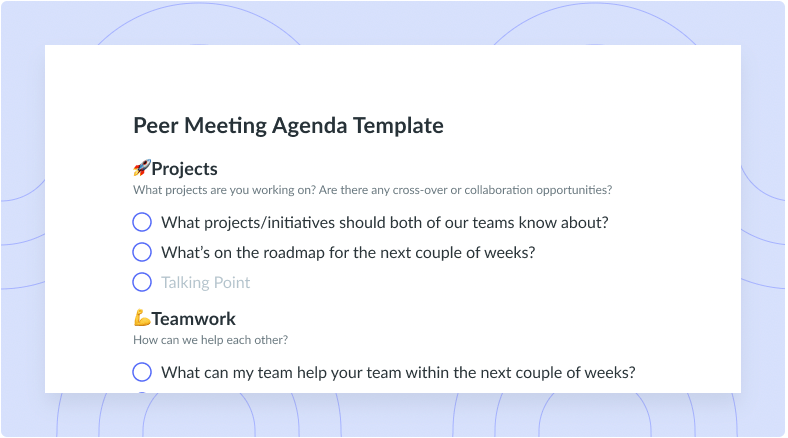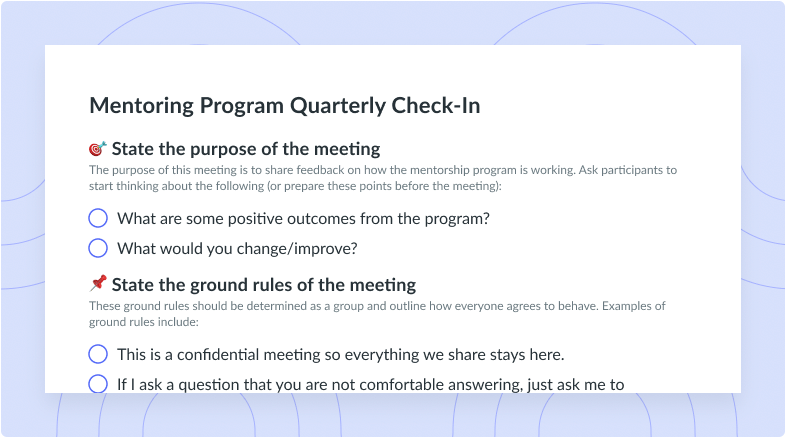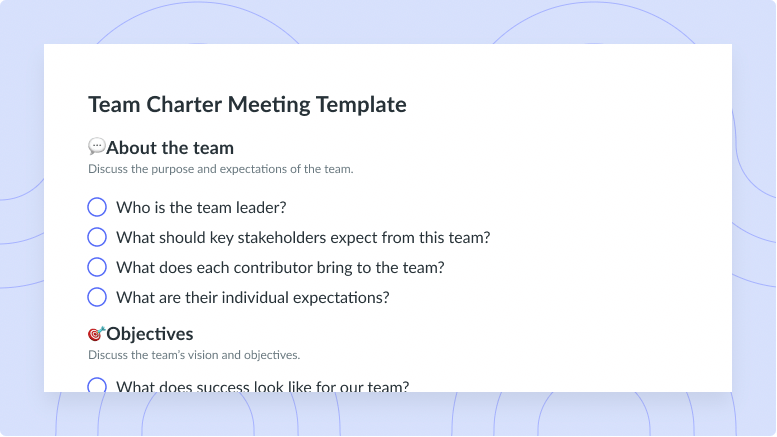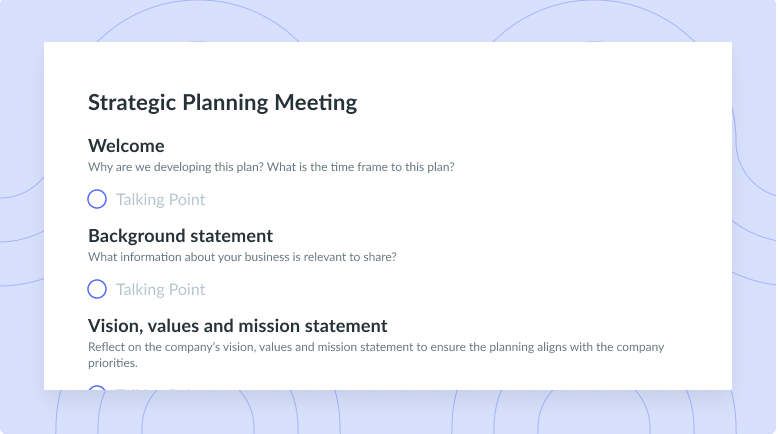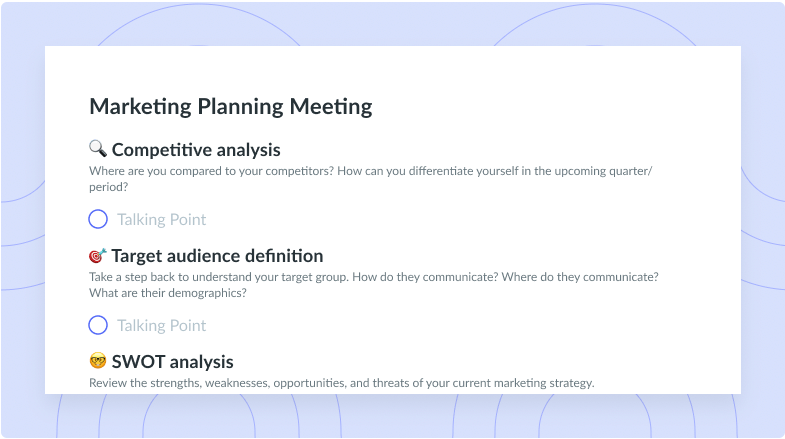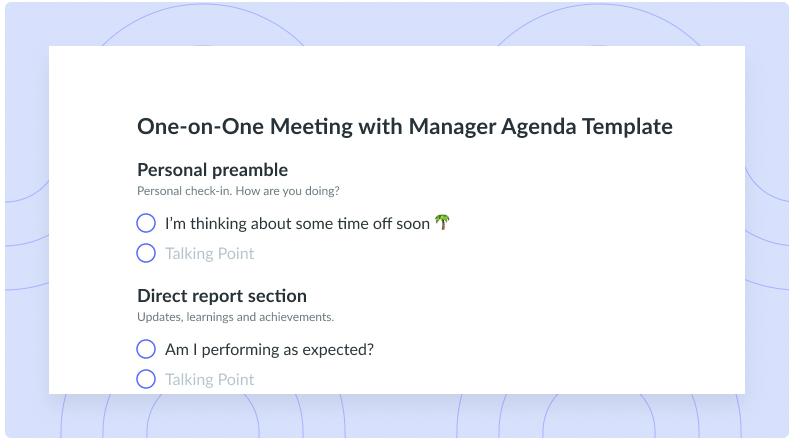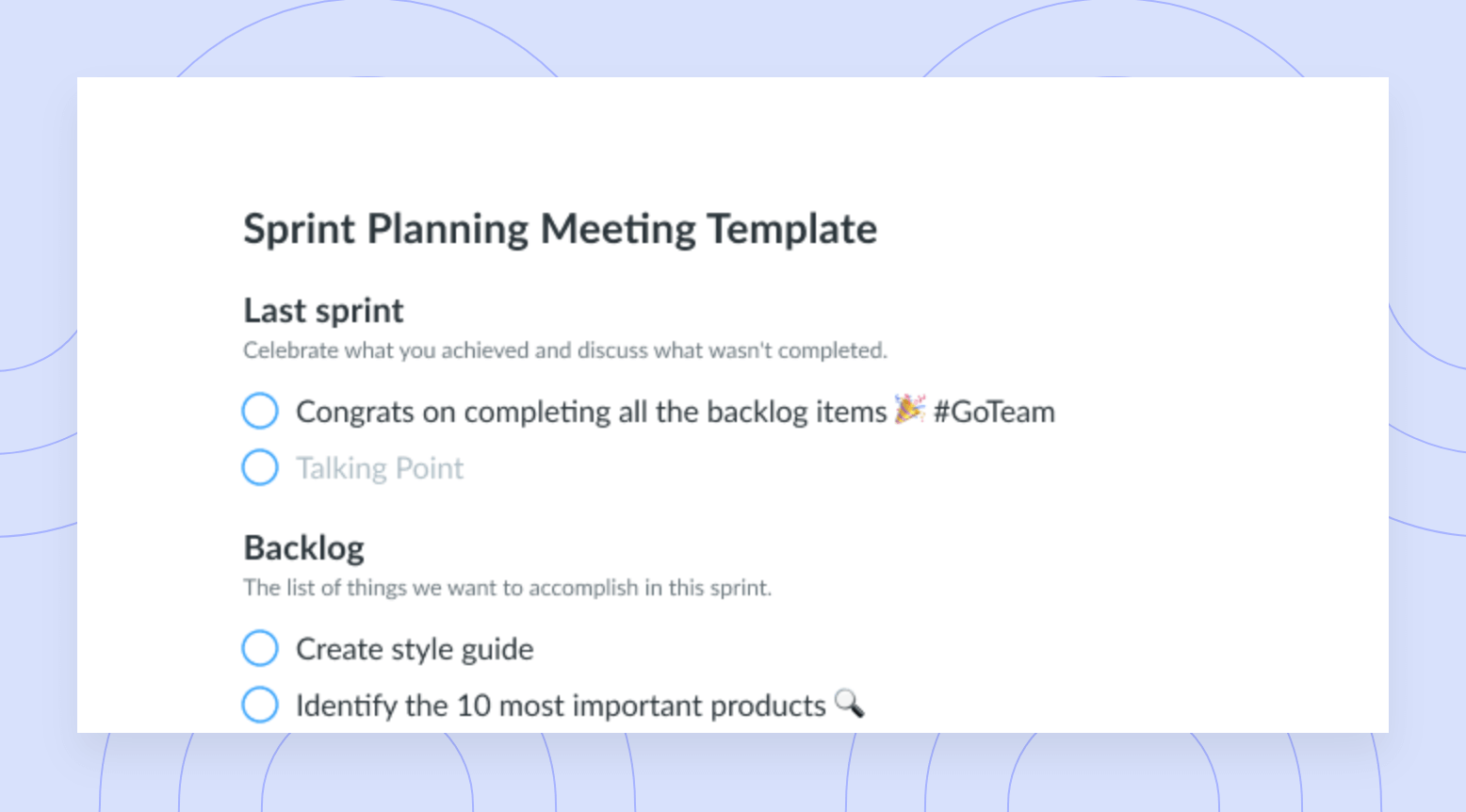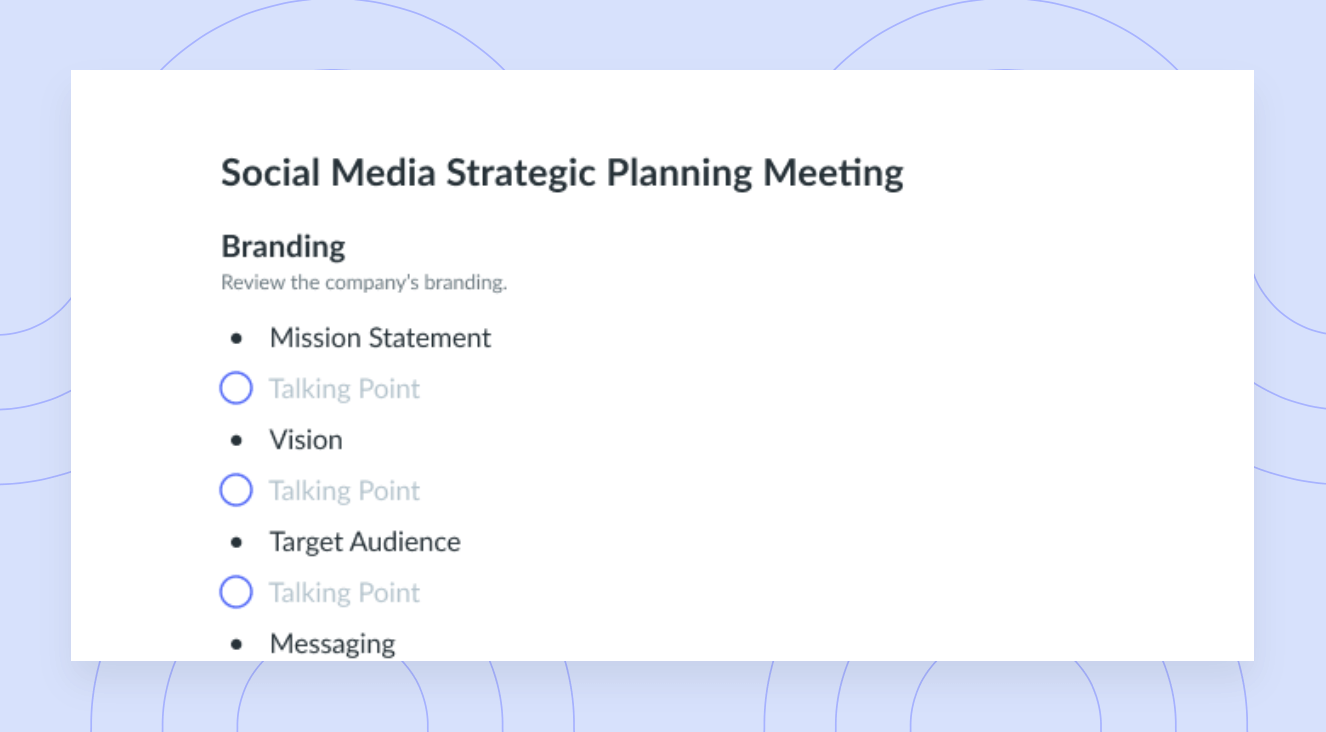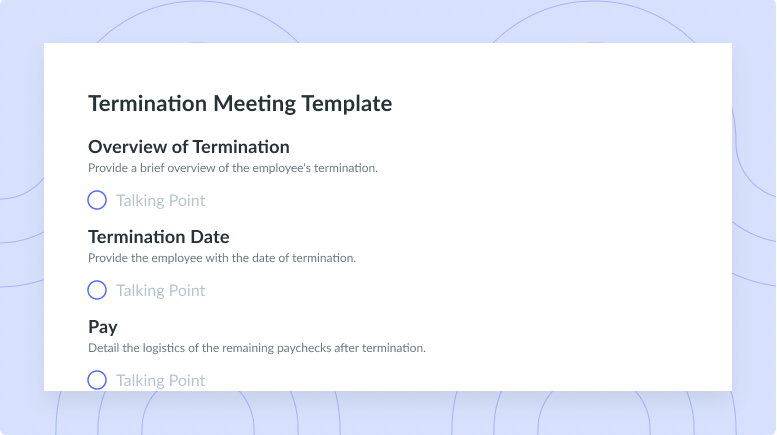8 Ways to Develop Personal Accountability With Your Team
Ready to stop playing the blame game? Discover eight ways to develop personal accountability with your team and the benefits accountability can lead to.
Sometimes, things don’t go quite the way we’ve planned.
No matter how much time and energy have gone into getting organized and thinking of various possible scenarios, things may not go the way you want or expect them to. When this happens, how do you react?
Do you deny you were involved and blame others, or do you own up to your part in the situation? If you answered the latter, chances are you have a sense of personal accountability. If you didn’t, now’s the time to learn what personal accountability is and how developing it is in your best interest.
- What is personal accountability?
- The benefits of personal accountability
- 8 ways to develop personal accountability
What is personal accountability?
We’ve all been tempted to play the “blame game,” but having personal accountability is all about delivering on your promises and accepting responsibility for the outcomes. It also includes being proactive and intentional about strategic follow-through. Someone willing to answer for outcomes based on their own choices, actions, and behaviors shows they’re personally accountable and willing to take ownership for what’s taking place.
Think about your professional life and workplace culture and whether your team embraces personal accountability. Do your teammates do what they say they’re going to do? Do they hold one another accountable? Without personal accountability, it’s likely your company culture is rooted in placing blame, accepting mediocre performance, and having vague goals.
Regardless of the scenario or situation, someone personally accountable sees things through, takes responsibility for the good and bad, doesn’t blame others if things go awry, and always does their best to make things right.

Take control of your day
Have an organized overview of your day and tasks in one place. Try using a tool like Fellow to hold yourself accountable.

The benefits of personal accountability
Personal accountability has benefits both inside and outside the workplace. Possessing these behaviors and habits can take someone a long way both in their career and in their personal life.
When you’re someone who shows personal accountability, it’s likely your relationships with colleagues, family, and friends are healthy and thriving. Social interactions with these people are positive, and you don’t walk away from these conversations feeling drained or exhausted.
Additionally, you’ll find building trust with teams and organizations easy because people know they can depend on you to keep your word professionally. Being personally accountable is also a quality of a leader who is trusted and respected by their team in more ways than one.
Plus, having this quality can save you time and money in the long run. Someone who is personally accountable takes responsibility for their actions by speaking up, finding solutions, and doing their best to avoid a bottleneck. And let’s not forget, someone who can show personal accountability for their actions can sometimes have an increased chance of promotion. Showing senior colleagues that you’re dependable will let them know you have leadership potential.
8 ways to develop personal accountability
If you’re looking to develop personal accountability but aren’t sure where to start, consider implementing these eight tips. While not all will work for every situation, taking these eight tips into consideration when you can is a good place to start.
- Know your role and responsibilities
- Listen to and learn from feedback
- Take ownership over your actions
- Learn to say “no”
- Create SMART goals
- Find an accountability partner
- Reflect on setbacks
- Be realistic
1 Know your role and responsibilities
No matter what kind of professional job you have, when you take the time to have a full understanding of your role and the responsibilities on your plate, this understanding helps to hold you, and everyone on your team, accountable. Plus, it also ensures everyone’s on the same page, and it creates a more transparent working environment.
Having these details clearly defined eliminates confusion, and everyone knows what’s expected of them. This clarity will set you and your team up for a greater chance of success. Remember, you can’t be accountable for your responsibilities if you’re unclear of what they are in the first place!
2 Listen to and learn from feedback
A great way to develop accountability is to listen to and learn from feedback. You need to hear what you’re doing well and where you should improve. Try to listen to and learn from feedback as often as possible and switch up who you’re receiving these comments from.
For instance, while you may look to your coworkers or manager to provide an honest evaluation of your job performance, clients and customers can also help you understand what you’re doing right and what could use some tweaking. Do your best not to take feedback personally, and apply any guidance you get to further set yourself up for success.
3 Take ownership over your actions
Personal accountability can vary from person to person, but at the end of the day, someone who is defined by this concept knows that having accountability involves being committed and taking ownership of their own actions.
It can be easy to blame other things or people when you don’t reach your goals as planned, and we all make excuses from time to time. But no matter how good or potentially truthful the excuse is, it’s still an excuse and comes off as you not taking ownership over your actions. Limiting this behavior and not falling back on excuses helps you develop personal accountability.
4 Learn to say “no”
There’s a time and place for knowing how to say “no” at work, and while you don’t want to come off as lazy or as someone who can’t be bothered to be a team player, you also don’t want to over-commit and have a to-do list that is way too long.
It may seem unnatural, and you may worry about disappointing others, but saying “no” is never a bad idea if it helps you to avoid feeling overwhelmed. Telling your boss or coworkers “no” the right way can make it clear that you’re not saying “no” because you don’t want to help them or be a team player, but because you want to avoid feeling burned out at work. Taking on more responsibility when you don’t have the bandwidth is setting yourself, and the team, up for failure.
Here, remember to know your priorities, professionally communicate them, and be as straightforward and authentic as possible. Communicate that if you take on too much, something will fall through the cracks and you’ll ultimately let someone down.
5 Create SMART goals
Next, a smart way (no pun intended) to develop personal accountability is to create SMART goals for yourself at work.
SMART goals are:
- Specific
- Measurable
- Achievable
- Relevant
- Timely
SMART goals are objectives that can be defined and acted upon. They should help you clarify the resources you need and how much time it’ll take to get something done. To successfully set goals the SMART way, develop your goal one letter at a time. Doing so makes it easier to determine what you’re looking to accomplish, what is needed to achieve success, why the goal is being set, and how to set the deadline.
The more clearly defined your SMART goals are, the easier it’ll be to hold yourself personally accountable at the end.
6 Find an accountability partner
If you’re lucky, you have a coworker or team member who helps you reach goals and accomplish tasks by offering guidance when they can and making sure you do what you say you’re going to do.
This person is an accountability partner! They take on a role similar to a mentor, but the relationship is mutually beneficial because you both offer feedback and support to one another — which is how they become a partner.
Have a conversation with someone with whom you’d like to be accountability partners and agree to always provide feedback, support, and coach one another. You need to be there for each other to discuss challenges, offer words of encouragement, and share accomplishments. Agree to meet daily or weekly to share wins and solve bottlenecks that arise.
7 Reflect on setbacks
No matter what it is you’re trying to accomplish or what type of goal you’re looking to achieve, it’s likely you’ll experience a setback at some point. When faced with a challenge, hurdle, or bottleneck, instead of blaming, reflect on what you can learn from the situation and what you could do differently next time.
Taking this approach is more productive than beating yourself up for assuming all of the faults. Instead, use this time to understand what went wrong. Doing so allows you to recognize that you have control over your own actions, whatever the outcomes.
8 Be realistic
No one is perfect, so be realistic when you’re setting goals, expectations, and assigning tasks.
Being realistic with your expectations gets easier when you play to your strengths and weaknesses. Narrow down your talents and the talents of your team. Play to everyone’s strengths and take what they find motivating into consideration when determining who will responsible for which action item.
A little accountability can go a long way
Building accountability in all walks of life is easier than you think. While it does take some work and effort, it’ll be worth it to become someone dependable, trustworthy, and an all-around great friend and coworker. Remember that building accountability won’t happen overnight, and you’ll need to make an effort to be personally accountable in specific scenarios and situations. When these moments present themselves, do away with the “blame game” and get ready to take responsibility for the good and the bad!









